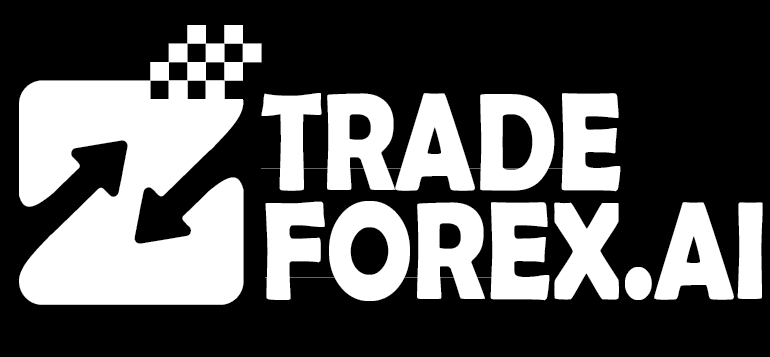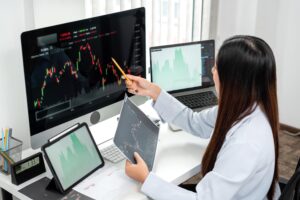In the modern forex market, trading platforms are no longer just optional tools for execution. They have become the digital infrastructure upon which the success of forex managed accounts is built. These platforms power everything from automated trading strategies and client risk management to real-time performance analytics and secure fund handling. Their importance has grown as both institutional and retail investors increasingly turn to managed accounts as a more hands-off, professional method of entering the forex market.
Forex managed accounts give clients the benefits of trading without requiring them to manage positions or study the markets. To deliver these benefits efficiently, trading platforms for forex managed accounts play a critical role. This convenience is effectively delivered through trading platforms for forex managed accounts that offer accuracy, reliability, and scale. Choosing the right trading platform ensures that account managers operate efficiently, client capital remains protected, and strategies are executed smoothly in fast-moving markets.
In recent years, investor expectations have changed significantly. Clients now demand transparency, instant reporting, and access to their account status from anywhere at any time. As a result, the trading platform for forex-managed accounts must offer intuitive user interfaces and continuous uptime. Without these capabilities, even the best trading strategies may fail to gain investor trust or scale efficiently. The rise of competition and global access also means that latency, execution speed, and system availability are more critical than ever.
MetaTrader Platforms
MetaTrader 4 and MetaTrader 5 are foundational platforms in the forex trading ecosystem. MT4, launched in 2005, quickly became the go-to choice for retail forex traders due to its simplicity and support for Expert Advisors. MT5, released in 2010, expanded upon MT4 by offering additional asset classes, deeper analysis tools, and more flexible order management.
MT4 suits managers focused exclusively on currency markets. Its MQL4 programming language allows the creation of custom indicators and trading robots. MT5 supports multi-asset trading and is preferred by managers pursuing portfolio diversification. The MQL5 language enables faster processing and is ideal for high-frequency and multi-threaded strategies.
MAM and PAMM modules available on both platforms allow money managers to allocate trades across multiple client accounts, adjusting lot sizes per balance while maintaining strategy consistency. This capability is vital for scalable and customisable account management. Additionally, the ability to deploy multiple strategies tailored to specific investor profiles through account segregation has made MetaTrader indispensable for professional managers.
The MetaTrader platforms also offer advanced charting, market depth, signal services, and a broad marketplace for third-party tools. This makes them complete ecosystems for analysis and execution. Their ongoing updates, third-party integrations, and community support create an evolving toolset that continues to serve both institutional and individual trading needs effectively.
Social Trading Platforms
While MetaTrader dominates the traditional space, social trading platforms like eToro, ZuluTrade, and Myfxbook AutoTrade have revolutionised investor engagement. These platforms allow users to copy successful traders, offering an easy entry for beginners and time-constrained investors. They bring transparency and democratisation into a space that was previously limited to professionals.
eToro stands out with its user-friendly design and community features. It provides detailed trader profiles showing performance, risk score, average trade duration, and historical returns. ZuluTrade and Myfxbook AutoTrade offer similar filters and auto-execution, with the added benefit of performance ranking, portfolio simulations, and trade commentary.
For managers, social platforms offer brand visibility and the ability to grow assets under management without traditional marketing. By consistently performing well, traders can attract followers and monetise their strategies. This performance-based model creates mutual incentives, aligning trader and follower success.
The integration of analytics, real-time execution, and investor communication tools makes social trading an essential component of today’s forex landscape. Gamification through leaderboards and rewards further enhances user engagement. Additionally, user feedback, investor rating systems, and transparency metrics create a data-rich environment for continuous strategy improvement.
Automation in Trading Platforms
Automation is essential in managed forex. Manual trade execution is inefficient and prone to error. Today’s managers rely on algorithms to execute trades based on predefined rules, ensuring speed and consistency. This has allowed trading teams to focus on macro-level strategy development and customer relationship management rather than routine tasks.
Expert Advisors in MetaTrader monitor markets, execute trades, and manage positions using technical indicators and market data. This eliminates emotional decision-making and allows managers to scale operations. Some managers also use scripts that integrate news feed analysis or economic indicators for more context-aware trading automation.
Automation extends to risk management and reporting. Managers can implement equity stop-outs, control drawdowns, and generate real-time performance reports. These features increase transparency and help in compliance and client communication. Reports can also be automatically shared with investors through customised dashboards, creating a sense of real-time participation.
Automated tools free up managers to focus on strategy development and client service. They enable management of larger, more diverse client bases while maintaining quality and efficiency. This shift is transforming the managed account model into a hybrid of quantitative and qualitative services, where smart systems support skilled professionals.
Mobile and Cloud Tools
Accessing and managing accounts remotely is now a baseline requirement. Platforms with mobile apps and cloud dashboards ensure clients and managers can respond quickly to market changes. They also provide resilience against technical issues that may affect desktop trading setups.
Apps from MetaTrader and eToro offer real-time pricing, charting, trade execution, and portfolio tracking. Investors enjoy 24/7 visibility, and managers benefit from on-the-go responsiveness. The mobile revolution has made trading accessible and responsive, eliminating downtime and delays in volatile markets.
Cloud infrastructure enhances data syncing, security, and scalability. It supports remote collaboration, encrypted backups, and reliable uptime. This is critical for firms overseeing numerous accounts and teams across regions. Additionally, cloud platforms often include version control, automated error recovery, and sandbox testing for deploying new features without risk.
The shift to mobile and cloud trading creates seamless experiences and business continuity, moving away from desktop-only systems and enabling modern, agile operations. Firms can now onboard clients digitally, integrate with CRMs, and deploy trading infrastructure globally, all from a centralised cloud environment.
Regulatory Compliance
Regulatory compliance and strong security are vital for building trust. Platforms partnered with regulated brokers meet standards that safeguard client funds and enforce transparency. Regulations ensure that funds are segregated, leverage limits are enforced, and clients are protected from fraud or malpractice.
Entities like the FCA, ASIC, and CySEC mandate client fund segregation, negative balance protection, and routine audits. Platforms adhering to these rules build credibility and reduce investor risk. Regulatory compliance also ensures that performance data is verified and disclosures are accurate.
Key security features include two-factor authentication, encrypted data transfers, secure login protocols, and user activity logs. These measures ensure data privacy and protect against breaches. Additional safeguards like biometric access, IP whitelisting, and real-time fraud detection further enhance platform integrity.
Clients are more likely to stay with platforms that uphold regulations and prioritise security. Trading platforms for forex managed accounts that demonstrate robust controls earn loyalty and reduce legal risk. In an era where cybersecurity threats are growing, secure infrastructure is not just a feature but a core expectation.
Future of Trading Platforms for Forex
Forex platforms are evolving with AI, machine learning, and blockchain technologies. These innovations aim to make platforms smarter, faster, and more transparent. They also promise to make forex more inclusive, data-driven, and responsive to individual investor preferences.
AI and machine learning analyse market data to identify patterns, predict trends, and suggest trades. Predictive analytics adjusts strategies in real time for better accuracy. Some platforms now offer AI-based strategy testing and risk scoring tools that allow users to optimise inputs before deployment.
Blockchain enables immutable trade records and enhances transparency. Each transaction is logged on a distributed ledger, reducing disputes and increasing trust. Smart contracts may also automate trade settlements and investor distributions, making fund operations smoother and faster.
Additional innovations include voice-command trading, biometric login, and wearable device integration. These tools improve security and enhance user experience, keeping platforms ahead of user expectations. Interactive analytics dashboards, gamification of education, and integration with personal finance apps are also on the horizon.
Conclusion: Platform Choice Powers Performance
The right trading platform shapes the performance and success of managed forex accounts. From MetaTrader’s advanced automation to social trading’s accessibility and cloud technology’s scalability, each platform offers unique strengths. By combining these capabilities with emerging technologies, managers can deliver smarter, faster, and more profitable trading services.
Trading platforms for forex managed accounts that support strategy execution, simplify compliance, ensure transparency, and meet evolving investor needs become long-term assets. In a competitive market, platform capabilities often define a manager’s edge. Efficient tools can reduce operational drag, improve reporting, and strengthen client relationships.
Selecting a platform is not just a technical decision. It is a strategic choice that affects growth, trust, and operational excellence. For any account manager or investor, the right trading platform for forex managed accounts is where strong results begin and grow stronger over time. The platform becomes the interface between vision and execution, strategy and performance, and trust and delivery.
In a future shaped by AI, automation, and on-demand access, choosing trading platforms for forex managed accounts that are adaptable, secure, and forward-thinking is the clearest path to success.
Click here for more: https://tradeforex.ai/why-forex-managed-accounts-are-perfect-for-professionals/
Click here for more: https://tradeforex.ai/forex-account-manager-performance-key-metrics-to-know/

I’m Chaitali Sethi, a financial writer and market strategist focused on Forex trading, market behaviour, and trader psychology. I simplify complex market movements into clear, practical insights that help traders make better decisions and build a stronger trading mindset.

